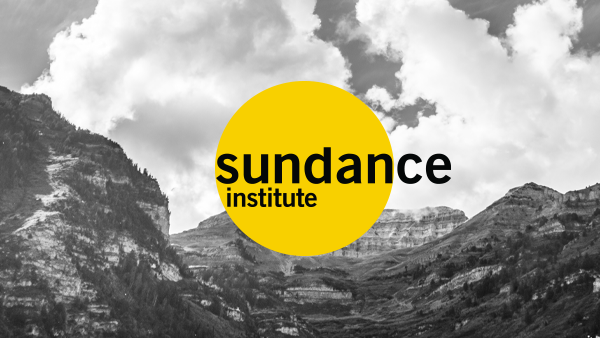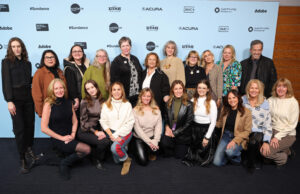Due to overwhelming demand, a second screening has been added at 8:45 p.m. Seattle Art Museum in conjunction with Sundance Institute will celebrate Native America filmmaking with free screenings on April 15, 2009 of Sikumi (On the Ice), a short film directed by Andrew Okpeaha MacLean (Iñupiaq), followed by Miss Navajo, a full-length film directed by Billy Luther (Navajo, Hopi, and Laguna).
The free screenings take place at 7:00 p.m.(SOLD OUT) and 8:45 p.m. Screenings will be followed by a Q&A with filmmaker Billy Luther moderated by Bird Runningwater (Cheyenne and Mescalero Apache), Associate Director, Native American and Indigenous Program for the Sundance Institute. Advanced reservations to secure seating can be made at http://www.seattleartmuseum.org/calendar/calendar.asp
Sundance Institute’s Native American and Indigenous Program hosts screenings, panels, events, and workshops throughout the year designed to foster community and the exchange of ideas among Native American and Indigenous filmmakers. Among the native community leaders in arts and culture and philanthropy who will be on hand are Justin Finkbonner (Lummi Nation), Janeen Comenote (Quinault/Hesquiaht/Kwakuitl/Oglala), Dr. Charlotte Coté (Nuu-chah-nulth), Tracy Rector (Seminole), and Matika Wilbur (Swinomish/Tulalip).
“Screening at the Seattle Art Museum gives an opportunity to share the work of two remarkable Native filmmakers,” said Runningwater. “There is such a hunger for films about native peoples by native peoples, and we are constantly scouting for artists and projects. We hope these screenings will encourage the Seattle community to consider Sundance as a source of opportunities for native and indigenous filmmakers.”
Sikumi (On the Ice), directed by Iñupiaq filmmaker Andrew Okpeaha MacLean, is a short film about an Inuit hunter who inadvertently becomes a witness to a murder. The film earned a Jury Prize in Short Filmmaking at the 2008 Sundance Film Festival and was named one of the Best Unseen Films of 2008 by Film Threat.
Miss Navajo, directed by Billy Luther, is a documentary that opens the door to the world of the Miss Navajo pageant, where contestants with diverse styles, physiques, and political orientations are challenged to answer tough historical questions in the Navajo language and showcase their spiritual and practical knowledge of Navajo practices. The film premiered at the 2007 Sundance Film Festival and later won Michael Moore’s 2007 Special Founders Prize.
Andrew Okpeaha MacLean is an Iñupiaq filmmaker born and raised in Alaska. His film Natchiliagniaqtuguk Aapagalu (Seal Hunting with Dad), which had its premiere at the 2005 Sundance Film Festival, was named one of the 10 best short films at the Festival by indieWIRE. Seattle Art Museum to Host Screenings of Native American Films from the Sundance Film Festival
MacLean’s feature film, When the Season Is Good: Artists of Arctic Alaska, was a featured screening in the 2007 Arctic summer series at the Smithsonian National Museum of the American Indian. He is a recipient of the John H. Johnson Film Award, a 2004 Princess Grace Foundation Graduate Film Fellowship, the 2003–2004 Martin E. Segal Prize, and was recently named a 2008 United States Artists Rasmuson Fellow. He received his undergraduate degree from the University of Washington and a MFA in film directing from New York University. A fellow at this January’s Sundance Institute Screenwriters lab, MacLean is currently at work developing Sikumi into a feature film.
Billy Luther belongs to the Navajo, Hopi and Laguna Pueblo tribes and is the son of the 1966 winner of the Miss Navajo pageant. He studied film at Hampshire College and worked for the Smithsonian Institution’s National Museum of the American Indian Film and Video Center. He has been selected for the 2006 Sundance Ford Fellowship and for CPB/PBS Producers Academy at WGBH and Tribeca Institute’s All Access Program. Luther is currently in development on the documentary Grab.
N. Bird Runningwater was born of the Cheyenne and Mescalero Apache peoples and was reared on the Mescalero Apache Reservation in New Mexico. He is currently based in Los Angeles with Sundance Institute where he serves as the Associate Director of the Institute’s Native American and Indigenous Program. A past Woodrow Wilson Fellow and an alumnus of the University of Oklahoma and the University of Texas’ LBJ School of Public Affairs, Runningwater has served as the executive director of the Fund of the Four Directions, and as a program associate in the Ford Foundation¹s Media, Arts and Culture Program. He serves as an advisor to Film Independent’s Project: Involve Program and as a creative advisor to the WGBH’s landmark documentary series We Shall Remain slated to premiere April 13, 2009. He was also profiled in Farai Chideya’s book The Color of Our Future.
Rooted in the recognition of the creative and artistic history of Native American and Indigenous artists, the Sundance Institute Native American and Indigenous Program supports the development of Native American and Indigenous filmmakers and the exhibition of their work. The program scouts across the U.S. and worldwide for artists to participate in the Institute’s core programs including the Feature Film Program which operates the Screenwriters and Directors Labs; the Theatre Program which operates Theatre Labs; the Film Music Program with operates Composers Labs; the Sundance Documentary Program which houses the Sundance Documentary Fund and Documentary Film Labs; the Sundance Film Festival which programs Native American and Indigenous films in all of its major categories; and the Sundance Independent Producers Conference which brings together filmmakers with the leaders of the independent film industry to explore the business of independent filmmaking.
Alumni of the Institute’s Native American and Indigenous Program include Sherman Alexie, Shirley Cheechoo, Chris Eyre, Greg Sarris, and Randy Redroad. The program’s current work is focused on supporting emerging talent such as Zoe Hopkins, Taika Waititi, Blackhorse Lowe, and Aurora Guerrero. The Native American and Indigenous Program is made possible, in part, by a major grant from the Ford Foundation.
Founded by Robert Redford in 1981, Sundance Institute is a not-for-profit organization that fosters the development of original storytelling in film and theatre, and presents the annual Sundance Film Festival. Internationally recognized for its artistic development programs for directors, screenwriters, producers, film composers, playwrights and theatre artists, Sundance Institute has nurtured such projects as Angels in America, Spring Awakening, Boys Don’t Cry and Born into Brothels. www.sundance.org
# # #
For images, go to ftp.sundance.org; Password: press; Username: SFF09!
Contacts:
Amy McGee, 310-492-2333
Nicole Griffin, 206-654-3158




